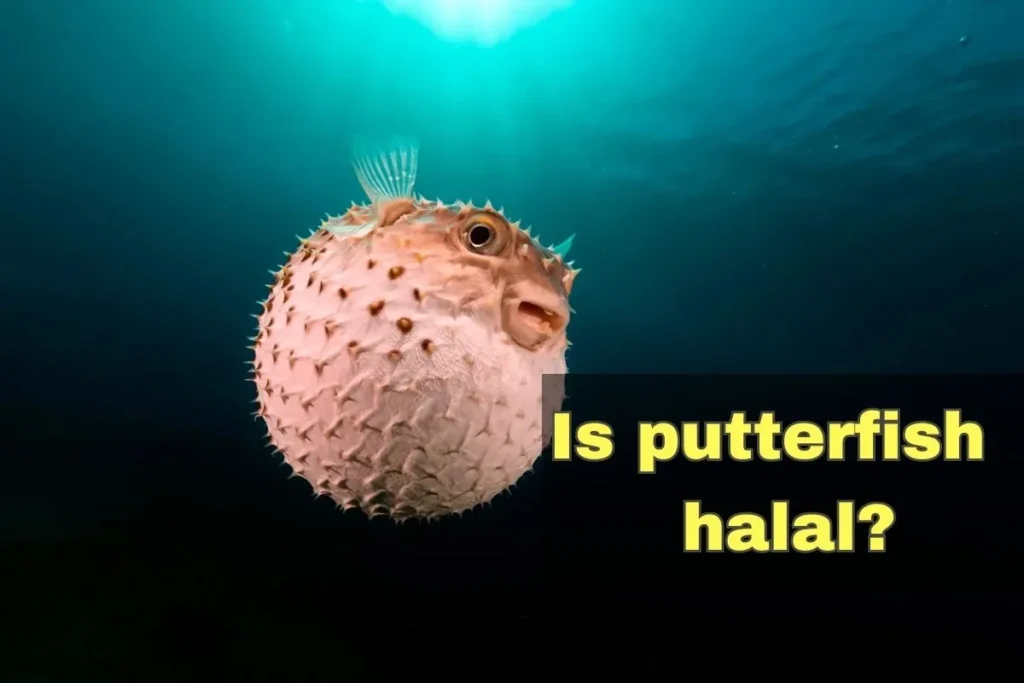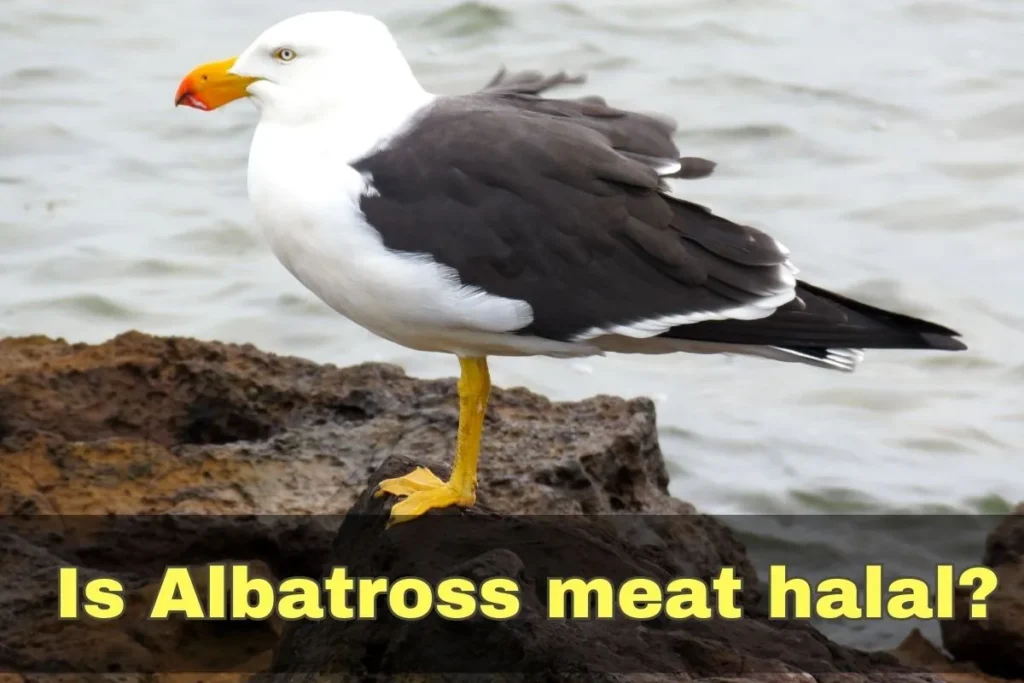Are you curious if putterfish fits within the scope of acceptable seafood according to Islam? Do you want to discover whether this small yet delectable aquatic animal counts under Shari’ah law regarding halal consumption? Look no further! We will dive deep into answering the question, “Is Putterfish Halal?” Join us today as we explore the topic and help guide your next dinner selection.
Key Takeaways
| 📌Pufferfish is Not Halal: Pufferfish, also known as blowfish or globefish, is not considered halal for Muslims to eat. It contains a highly poisonous substance called tetrodotoxin, which can be deadly if consumed. |
| 📌 Islamic Dietary Guidelines: In Islam, the general rule is that food is considered halal (permissible) unless it’s explicitly mentioned as haram (forbidden) in the Quran or Hadith (teachings of Prophet Muhammad). Pufferfish doesn’t meet the halal criteria due to its toxicity. |
| 📌 Safety and Health: The prohibition of pufferfish consumption is in line with Islamic principles that prioritize the safety and health of individuals. Consuming poisonous substances goes against these principles. |
About Putterfish
Pufferfish, also known as blowfish or globefish, belong to the family Tetraodontidae, which consists of over 120 described species. One aspect that sets this group apart from others is its ability to puff itself up by ingesting large amounts of water or air when feeling threatened. The result is an odd-looking ball shape, making it difficult for potential predators to capture and swallow the fish.
Additionally, another remarkable feature of the pufferfish defense mechanism lies in its highly potent neurotoxin, tetrodotoxin. This toxic substance acts as both a deterrent against predators and as a means of self-defense by causing paralysis in larger marine creatures that might attempt to eat the fish.
Interestingly, humans also face danger when consuming improperly prepared pufferfish meat; in fact, tetrodotoxin remains without cure even today. Only chefs possessing a specific Japanese license (called “fugu” chefs), after rigorous training on how to properly cleanse and prepare the fish, are legally allowed to serve pufferfish in restaurants.
Despite the risks and many deaths involved, people around the world continue to seek out and enjoy pufferfish as food, particularly in Asia, where its presence in culinary traditions dates back thousands of years.
General Ruling for Food
Under Islamic jurisprudence, matters involving dietary laws follow the principle of Halal, meaning they are permissible, unless otherwise explicitly stated as Haram in the divine scriptures or through the directives of the Prophet Muhammad ﷺ (peace be upon him).
يَـٰٓأَيُّهَا ٱلنَّاسُ كُلُوا۟ مِمَّا فِى ٱلْأَرْضِ حَلَـٰلًۭا طَيِّبًۭا وَلَا تَتَّبِعُوا۟ خُطُوَٰتِ ٱلشَّيْطَـٰنِ ۚ إِنَّهُۥ لَكُمْ عَدُوٌّۭ مُّبِينٌ
“O humanity! Eat from what is lawful and good on the earth and do not follow Satan’s footsteps. He is truly your sworn enemy.”
You may reference the Quran to determine the edibility of certain items based on the guidelines set forth by its teachings. Specific sections include Surah al-Baqarah (Chapter 2) Verse 195 and Surah al-Maida (Chapter 5) Verse 3.
وَأَنفِقُواْ فِي سَبِيلِ ٱللَّهِ وَلَا تُلۡقُواْ بِأَيۡدِيكُمۡ إِلَى ٱلتَّهۡلُكَةِ وَأَحۡسِنُوٓاْۚ إِنَّ ٱللَّهَ يُحِبُّ ٱلۡمُحۡسِنِينَ
“And spend of your substance in the cause of Allah, and make not your own hands contribute to (your) destruction; but do good; for Allah loves those who do good.
As indicated by the previous scriptural passage, we must take precautions not to cause any kind of harm to ourselves or to others. Specifically, we should refrain from indulging in activities or consuming substances that could have adverse effects on our health or physical state.
Islamic dietary laws specify several categories of meat that are considered unlawful for consumption – this includes meat that has gone and smells bad, contains traces of impurity or blood, has been partially eaten by scavengers, or comes from animals that died before being slaughtered according to Shariah guidelines.
حُرِّمَتْ عَلَيْكُمُ ٱلْمَيْتَةُ وَٱلدَّمُ وَلَحْمُ ٱلْخِنزِيرِ وَمَآ أُهِلَّ لِغَيْرِ ٱللَّهِ بِهِۦ وَٱلْمُنْخَنِقَةُ وَٱلْمَوْقُوذَةُ وَٱلْمُتَرَدِّيَةُ وَٱلنَّطِيحَةُ وَمَآ أَكَلَ ٱلسَّبُعُ إِلَّا مَا ذَكَّيْتُمْ وَمَا ذُبِحَ عَلَى ٱلنُّصُبِ
“Forbidden to you are carrion, blood, and swine; what is slaughtered in the name of any other than Allah; what is killed by strangling, beating, a fall, or by being gored to death; what is partly eaten by a predator unless you slaughter it; and what is sacrificed on altars.“
While the general rule among Muslims is to avoid consuming the mentioned kind of carrions, some exemptions apply to specific cases. For instance, the inclusion of seafood like fish along with insects such as grasshoppers is acceptable under Islamic rulings.
It was narrated from ‘Abdullah bin ‘Umar that the Messenger of Allah (ﷺ) said:
“Two kinds of dead meat and two kinds of blood have been permitted to us. The two kinds of dead meat are fish and locusts, and the two kinds of blood are the liver and spleen.”
The Prophet Muhammad highlighted the halal status of fish in one of his sayings, which further reinforces the religious guidelines for what can be consumed by observant Muslims.
كُلُّ ذِي نَابٍ مِنَ السِّبَاعِ فَأَكْلُهُ حَرَامٌ
Narrated Abu Hurairah that the Prophet Muhammad ﷺ (peace be upon Him) said :
“Every beast with fangs is forbidden to eat”
The Prophet Muhammad ﷺ (peace be upon him) not only clarified that fish and locusts were not considered impure, but he went on to specify which types of animals were prohibited for consumption according to Islamic law.
كُلُّ ذِي نَابٍ مِنَ السِّبَاعِ فَأَكْلُهُ حَرَامٌ
Narrated Abu Hurairah that the Prophet Muhammad ﷺ (peace be upon Him) said :
“Every beast with fangs is forbidden to eat”
عَنِ ابْنِ عَبَّاسٍ قَالَ نَهَىرَسُولُ اللَّهِ -صلى الله عليه وسلم- عَنْ كُلِّ ذِى نَابٍ مِنَ السِّبَاعِوَعَنْ كُلِّ ذِى مِخْلَبٍ مِنَ الطَّيْرِ
“From Ibnu Abbas said: “The Messenger of Allah, may God bless him and grant him peace, forbade from every wild animal that has sharp teeth and claws (predators)”
Is Putterfish Halal?
Although most forms of fish fall into the halal classification, due to the dangerous levels of poisons found in their bodies, consuming pufferfish is haram (prohibited) according to Islamic dietary regulations.
Find out more :
Is pike halal?
Is pollock halal?
Final Thought
Based on the available information, it can be concluded that while most types of fish are considered lawful (halal) for Muslims to eat, consuming pufferfish is specifically forbidden since they contain high amounts of poisonous substances.
This ruling is derived from the teachings of the Quran and the Hadith, where Allah commands us to stay away from food that may cause illness or injury to our health. In essence, this judgment serves as a means of protecting individuals who practice Islam and promoting good health through wholesome eating habits.
Wallahu A’lam (Allah knows best)
FAQ
Is Putterfish dangerous?
Tetrodotoxin is a highly potent toxic substance present in nearly all species of pufferfish. Eating putterfish may result in death among other marine creatures if ingested. For human beings, it is approximately 1,200 times more fatal compared to cyanide, and just one pufferfish carries sufficient amounts to eliminate thirty grown-ups; unfortunately, there exists no cure currently known to counteract tetrodotoxin.
Does a pufferfish have a spine?
The Tetraodontidae family and Diodontidae family consist of both pufferfish and porcupine fish, respectively. Amongst these two families exist differences in the arrangement and appearance of spines which are unique to each particular species.
Where to find pufferfish?
Some species of pufferfish residing mostly in saltwater environments include those adapted to living in brackish or freshwater. Specifically, there are 35 varieties confined solely to freshwater areas located primarily in tropical/subtropical regions across South America, Africa, and Southeast Asia.
- Is Pop Tarts Halal? What You Need to Know - February 18, 2024
- Are Graham Crackers Halal in Islam? - January 19, 2024
- Is Keebler Wheatables Halal? - January 18, 2024





